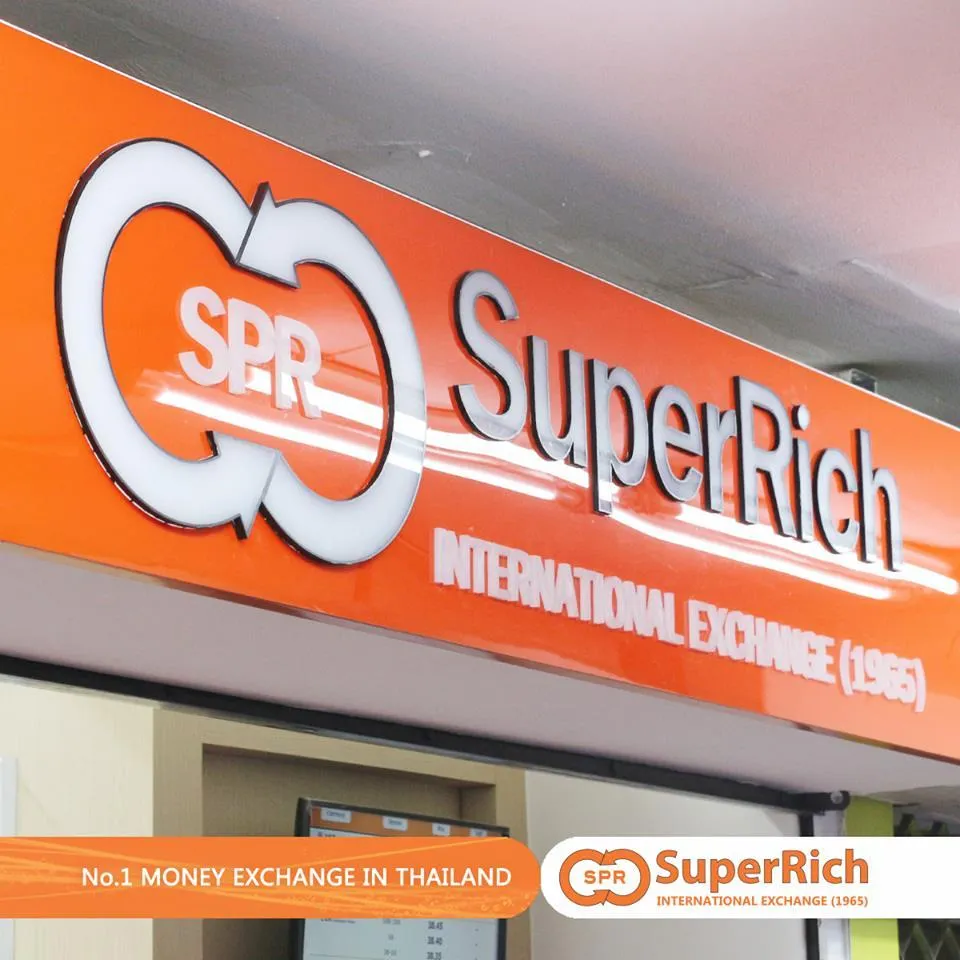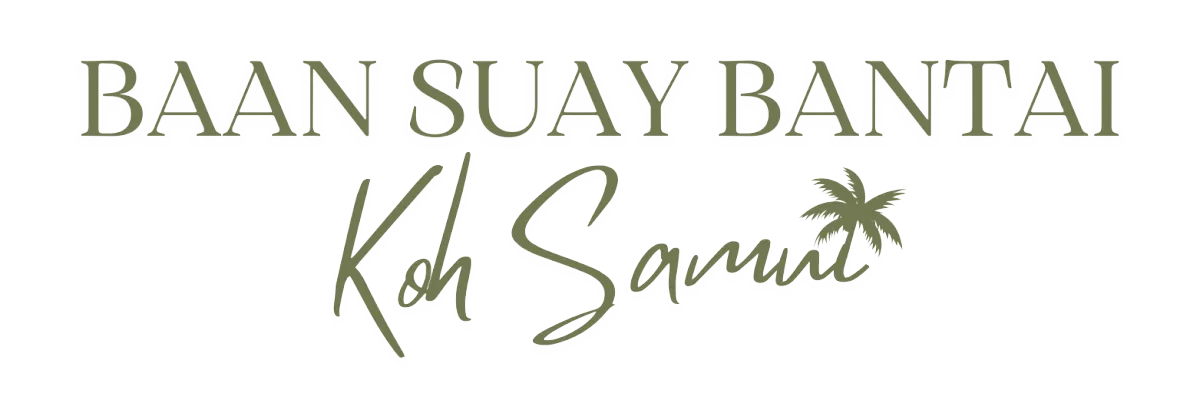Most Recent Blogs

Essential Money Tips for Thailand: Currency, Exchange Rates, and More
“Avoid high exchange rates in Thailand by using exchange booths like SuperRich or bring a card with no foreign transaction fees (hello, Revolut and Wise!). Additionally, try to make fewer, larger withdrawals to minimize ATM fees.” - Misty Dowling
Essential Money Tips for Thailand: Currency, Exchange Rates, and More..
Hey there, future Thailand traveler! 🌴 Whether you're planning a short getaway or a longer stay in our beautiful paradise, understanding how to handle money here is crucial. We've gathered all the common questions about money in Thailand and answered them just for you so that you can have a stress free and well prepared holiday. Let's dive in!
What currency is used in Thailand?
The official currency of Thailand is the Thai Baht (THB). As of now at the time I’m writing this, the exchange rate is approximately 1 USD = 30 THB and 1 EUR = 35 THB. However, it’s important to note that exchange rates can vary between banks and currency exchange services. They can also change daily, or even multiple times a day, depending on market fluctuations.
When you’re in Thailand, you’ll notice that the bills feature a portrait of the current King, King Maha Vajiralongkorn (King Rama X). The King is highly revered in Thailand, and it’s essential to treat Thai currency with respect. For instance, stepping on money is considered extremely disrespectful and should be avoided at all costs. Similarly, you should never "make it rain" (throw money in the air) as it is seen as disrespectful towards the monarchy.
Whenever you exchange money or make payments in foreign currency, be aware that the exchange rate used by each bank or establishment may differ. It's always a good idea to compare rates at different exchange booths or banks to ensure you're getting the best deal. More about this later.
1. Where can I get the best exchange rates in Thailand?

For the best rates, head to local exchange booths, not the ones at the airport. SuperRich is generally a popular choice with competitive rates. Remember to avoid exchanging money at hotels or tourist traps, as their rates are typically less favorable. Keep an eye on the rates offered by different banks, too. Bangkok Bank, Kasikorn Bank, and Krungsri generally offer decent rates.

2. Should I bring cash or use my card in Thailand?
A mix of both is ideal. Carry some cash for markets and street vendors, and use your card at hotels and bigger restaurants. It’s also wise to bring some Euros or USD as backup, which you can exchange locally if needed. Remember, while credit cards are widely accepted in urban areas and big hotels, smaller locally owned shops and restaurants often only accept cash.
3. Are there ATM fees in Thailand?
Yes, most ATMs charge around 200-250 THB per withdrawal for foreign cards. Ouch! To minimize these fees, try to withdraw larger amounts at a time. Some ATMs have a limit of 10,000 THB per transaction, but Krungsri (the yellow ATM) for example allows up to 30,000 THB per transaction. Also, consider going into a bank office to withdraw money. Bring your passport and card, and you might avoid those pesky additional fees.
4. Which banks have the lowest ATM fees in Thailand?

Bangkok Bank, Krungsri, and SCB are known for slightly lower fees, but Aeon Bank is the winner with the lowest fee with a 150 THB fee per transaction, their withdrawal limit however is 20,000 THB. Additionally, check the exchange rates each bank offers as they can vary. Typically, Bangkok Bank, Kasikorn Bank, and Krungsri offer competitive rates. However, the local rates are nearly always poor, meaning that the withdrawal may costs you more - and you’ll have less spending money for your trip. You can therfore also decline the conversion, and it’ll be carried out by your bank or card provider instead. They might give you a better rate. So the bottom line is - always press ‘no’ when asked about currency conversion when your bank/card provider offers a better conversion rate.
5. Cash First then Card! Don't make this mistake!
Don't make the same mistake I made! In many countries we are used to first receiving back our debit/credit card before the ATM machine spits out your bills when withdrawing money. This is the opposite in Thailand! So, please be aware that you will receive your money before your card is returned. Don't walk away with your bills in hand (like you may be used to), forgetting your card in the machine. If you don't instantly realize this and turn around, the machine will swallow your card and it is not always easy to get it back. If this does happen to you (even though I warned you) make sure you take note of the address or Google Maps location of the ATM you used and go to the nearest bank office for that bank, explain your situation and in some cases they will be able to retrieve the card from the ATM machine for you.
6. Can I use my credit/debit card everywhere in Thailand?
Not everywhere. Big hotels, malls, and restaurants accept credit cards, but for markets, local shops, and street food, cash is king. Visa and MasterCard are widely accepted, while American Express, Maestro, and Discover might not be. It’s always a good idea to have a bit of cash on you for smaller purchases.

7. Is it better to exchange money in my home country or in Thailand?
Generally, you get better rates in Thailand. So, you could exchange a small amount to get you started (although not really necessary) and the rest here. Local exchange booths like SuperRich offer great rates compared to your home bank. Also, avoid exchanging money at the airport if possible, as the rates are usually less favorable. If you do need to exchange money at the airport, head to the underground level (B Floor) near the Airport Rail Link Suvarnabhumi Station to secure the best exchange rate at Bangkok Airport.
This area, known as the Suvarnabhumi Airport Exchange Zone, hosts several currency exchange counters that offer significantly better rates than the bank branches located elsewhere in the airport. Since exchange rates can vary slightly between booths, it's a good idea to compare rates. The money changers here do not charge any commissions or fees. Remember, you generally get a slightly better rate for larger denomination notes in Thailand.
Here are some of the currency exchange services available in this area:
SuperRich (Orange)
Opening hours: Daily from 05:30 - 23:30
Kasikornthai
Opening hours: Daily from 06:00 - 22:00
Happy Rich
Opening hours: Daily from 05:00 - 24:00
8. What is the best way to carry money in Thailand?
Use a mix of cash and cards. If you worry about keeping your money safe.. Keep large amounts of cash in your hotel safe and carry smaller amounts for daily expenses. Consider using a money belt or a hidden pouch for added security. For beach days, a beach lockbox can help keep your valuables safe while you enjoy the sun and sea. This way nobody needs to stay behind to guard your valuable belongings. Enjoy your family time, together in the sea or the pool without any worries.
Here are some great options:
Beach lockbox on Amazon COM (For Delivery in the US):


Moneybelt on Amazon COM (For Delivery in the US):


Beach lockbooxes on Amazon NL:


Money belts on Amazon NL:


Tianbi Reisgeld riem, verborgen portemonnee, paspoort geld heuptas - €7,29
Beach lockbox on Bol COM
Moneybelt on Bol COM
*Disclaimer: This post contains affiliate links. This means that if you make a purchase through any of the links above, I may earn a small commission at no extra cost to you.
9. Are there any restrictions on the amount of cash I can bring into Thailand?
You can bring in any amount, but if it exceeds $20,000 USD (or equivalent in any other foreign currency), you must declare it upon arrival. If you're bringing Thai baht (THB) into the country rather than a foreign currency, the most you can carry with you is 500,000 THB.
This rule helps prevent money laundering and other financial crimes.
10. How can I avoid high exchange fees in Thailand?
Use exchange booths like SuperRich or bring a card with no foreign transaction fees (hello, Revolut and Wise!). Additionally, try to make fewer, larger withdrawals to minimize ATM fees.

11. Are there any 24-hour currency exchange places in Thailand?
Yes, most major tourist areas have 24-hour exchange services. Airports, too, but remember, rates are usually not great there. In cities like Bangkok and Chiang Mai, you’ll find plenty of exchange booths open late into the night.

12. Is it safe to use ATMs in Thailand?
Yes, but stick to ATMs attached to banks for added security. Cover your PIN and be aware of your surroundings, like you would anywhere in the world. It’s also a good idea to avoid using ATMs late in isolated areas.
13. How much cash should I carry on a daily basis in Thailand?
About 1000-2000 THB is usually enough for daily expenses, depending on your plans. This amount will cover meals, transportation, and small purchases. Keep the rest of your cash in a safe place, like your hotel safe.
14. Are there specific places where I should avoid exchanging money in Thailand?
Avoid hotel exchange services and standalone ATMs in isolated areas. These places often have higher fees and less favorable rates. Stick to reputable exchange booths in busy areas.
15. What are the accepted payment methods in Thailand?
Cash, credit/debit cards, and increasingly, mobile payment apps. Local apps like TrueMoney and Rabbit Line Pay are becoming popular, and international apps like Revolut and Wise are also handy.
16. How widely are credit cards accepted in Thailand?
Fairly widely in urban areas, but not as much in rural areas. Always have some cash just in case. Visa and MasterCard are the most widely accepted, while American Express and Discover might be hit or miss. But again, big hotels, malls, and restaurants accept credit cards, but for markets, local shops, and street food or smaller restaurants, cash is king. It’s always a good idea to have a bit of cash on you for smaller purchases.

17. Can I use mobile payment apps in Thailand?
Apps like TrueMoney, Rabbit Line Pay, and international apps like Revolut and Wise are accepted at some establishments but definitely not everywhere.
18. What's the tipping culture in Thailand?
Tipping is appreciated but not mandatory. In restaurants, rounding up the bill or leaving 10-20 THB is common. For excellent service, feel free to tip more. Salaries can be quite low, so tips are a significant help to service workers.
19. Can I use traveler's checks in Thailand?
Traveler's checks are less common nowadays. Stick to cash and cards for convenience. If you do bring them, you’ll need to cash them at a bank, which can be a hassle.
20. Are there currency exchange restrictions in Thailand?
No strict restrictions, but large amounts (over $20,000 USD or equivalent) must be declared. For practical purposes, it’s best to exchange as you go to avoid carrying large sums of cash.
21. Should I tip in Thailand? If so, how much?
Yes, tipping is appreciated but not expected. For small services like porters, 20-50 THB is sufficient. In restaurants, rounding up or leaving about 10% is standard. Taxis and tuk-tuks don't usually expect tips, but it’s nice to round up the fare.

While on the topic of tipping, I would like to share my personal story and something I wish I knew the first time I traveled to Thailand!
Whenever I travel to a new destination for the first time, I always try to read up on the do's and don'ts of the country and the local/cultural customs, so that I can avoid unintentionally being disrespectful to the people. When I first came to Thailand, I also read that tipping is very uncommon and neither necessary nor expected. Some people even advised not to!
A couple years after that first Thailand trip, I moved to Bangkok to live and work there, and I learned that what I had read just a few years earlier, couldn’t be further from the truth! My experience working with Thai staff in hospitality and all the lovely local people around me is that many of them depend on tips! The average Thai salaries are very low, and even though Thailand is very cheap for many tourists, life for the locals is not as cheap as it seems, especially in a city like Bangkok. Additionally, many of them have children, parents, or sometimes even siblings for whom they are financially responsible.
What I am trying to say in short is... by giving a tip to that friendly waiter, receptionist, or cleaner, you can sometimes make a bigger difference than you might think. 😊
22. Can I get a refund on the VAT paid on items I bought in Thailand?
Tourists visiting Thailand can take advantage of the VAT (Value Added Tax) refund scheme, which allows them to reclaim a portion of the VAT paid on goods purchased during their stay. Here are the key details you need to know about the VAT refund process for tourists in Thailand:
Eligibility Requirements

Eligible Goods: Only goods purchased from stores displaying the "VAT Refund for Tourists" sign are eligible for a refund. Services, such as hotel stays and restaurant meals, are not eligible.
Minimum Purchase Amount: To qualify, you must spend at least 2,000 THB (including VAT) per day at each participating store. The total minimum amount across all stores must be at least 5,000 THB.
Timeframe: Purchases must be made within 60 days before your departure from Thailand.
Passport Requirement: You need to show your passport at the time of purchase to receive a VAT Refund Application Form (P.P.10) from the store.
Refund Process
Get the P.P.10 Form: At the time of purchase, ask the store for a VAT Refund Application Form (P.P.10) and ensure it is filled out correctly with your details and the store's information.
Present Goods and Form at the Airport:
Before Check-in: Upon departure, present the goods and the completed P.P.10 form at the VAT Refund Office in the departure hall before checking in your luggage. Note that goods must be unused and still in their original packaging.
After Immigration: After clearing immigration, proceed to the VAT Refund Office located in the departure lounge with your approved P.P.10 form, receipts, passport, and boarding pass.
Claim Your Refund: The refund can be processed in cash (for amounts up to 30,000 THB), by credit card, or via bank transfer. Note that there may be an administration fee deducted from the refund amount.

Make sure you:
Arrive Early: Allow extra time at the airport to complete the VAT refund process, as queues can sometimes be long.
Keep All Documents: Ensure you have all necessary documents, including the original purchase receipts, P.P.10 form, passport, and boarding pass.
Packaging: Keep goods in their original packaging and unused until you have completed the VAT refund process at the airport.
Bonus Tips: Using Revolut and Wise
Revolut and Wise are lifesavers for travelers! They offer great exchange rates, low fees, and the convenience of paying directly with your phone or card. Plus, you can withdraw cash from ATMs without hefty fees (up to a certain limit).
Here’s how they can help:
Revolut: Free to open an account. Offers free ATM withdrawals up to a certain limit each month. Great for managing daily expenses without carrying a lot of cash. You can also use Revolut to transfer money internationally with no hidden fees.
Wise: Excellent for transferring money internationally with low fees and real exchange rates. Handy for paying larger amounts like hotel stays or long-term accommodation. Wise also provides a multi-currency account, making it easier to manage your money while traveling.
Final Thoughts
Handling money in Thailand doesn’t have to be stressful. With these tips and a bit of preparation, you’ll be spending more time enjoying the beauty of Koh Samui and less time worrying about your finances. Got more questions? Drop them in the comments below, and we’ll be happy to help!
© 2023+ Misty Dowling Media - All Rights Reserved

